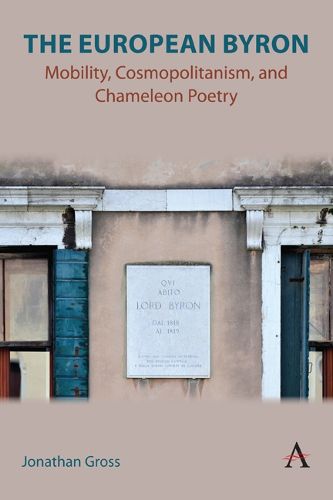The European Byron
Jonathan Gross

The European Byron
Jonathan Gross
Byron concealed himself in various literary disguises, a process he called "mobility." In this study of influences on Byron's verse and Byron's European impact, I explore these borrowings and transformations as they manifested themselves in his reading. At issue is the very concept of romantic poetic voice. Framing himself in the tradition of the Irish yet cosmopolitan Thomas Moore, Byron adopted continental guises, imitating both Italian writers and political heroes, such as Dante, Machiavelli, and Tasso. In establishing an Italian identity, Byron relied upon the Italian writers he translated (Pulci, Dante), Thomas Moore's "Fudge Family in Paris," and Shelley's "Julian and Maddalo," as well as Goethe's Faust. This Europeanization of Byron should not conceal the fact that Byron adopted poses from his predecessors, such as Walter Scott, in order to fashion himself as a Scottish poet who also happened to be English. Byron became the writers he read: Moore, Shelley, Wordsworth, Scott, Foscolo, Lady Morgan, and Madame de Stael. Those who imitated Byron, particularly Alexander Pushkin and Adam Mickiewicz, became the best interpreters of his literary example, and explained what it meant to be a Harold in Muscovite Cloak, or a Polish Byron, to be both delimited and emancipated by Byron's example.
Order online and we’ll ship when available (16 September 2025)
Our stock data is updated periodically, and availability may change throughout the day for in-demand items. Please call the relevant shop for the most current stock information. Prices are subject to change without notice.
Sign in or become a Readings Member to add this title to a wishlist.

